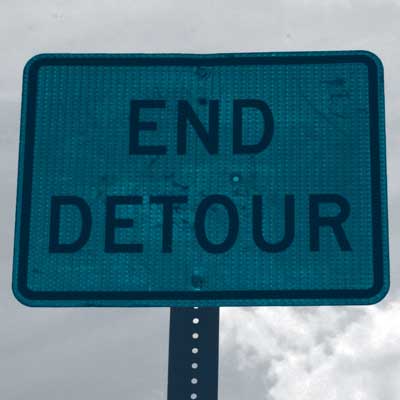Restarting After A Relapse
Some people will tell you that relapse is part of recovery. I think it’s better to say relapse is part of the disease of addiction. As someone who has been to treatment four times and relapsed multiple times, I know, firsthand, how hard it can seem to come back from a relapse. I can also tell you that it’s possible to recover from addiction and to never use again.
By Lara Frazier
There are many temptations and triggers that exist when you are newly sober. It is nearly impossible to stay sober in the same environment in which you are using. You will have to change your behaviors and change your thinking. You might have to say goodbye to your drinking and using buddies. It might also be a good idea to not live in a home where there are alcohol or drugs present.
Here are 5 tips that will help you if you’ve relapsed:
1. Tell The Truth About Your Relapse
Hiding the fact that you relapsed and pretending it didn’t happen doesn’t help you. There is a common phrase in recovery that says: ‘Our secrets keep us sick.” If you have relapsed, tell the people who are close to you that you have drank or used. People will respect you more and continue to trust you if you are able to be honest about the fact that you relapsed. I remember the times when I didn’t tell anyone I relapsed and I continued picking up my monthly chips as if it didn’t happen. Eventually, I felt so guilty that I had to tell the truth. There were other times when I didn’t say anything about my relapse, and my addiction continued to get worse. The sooner you can tell the truth, the better off you are.
2. Re-Enter Treatment If Necessary
If you have been using for a period of time, it might be a good idea to enter treatment again. As you are likely aware, the detox process can be uncomfortable and painful. Even if you don’t feel you need to detox, you may not be able to stop using on your own. It’s important to return to a safe environment that can support you in recovering from your addiction. The more help you have in your recovery, the better off you will be. You might want to consider staying in treatment for a longer period of time. It’s a proven fact that the longer you stay in treatment; the better chance you have at recovery.
3. Utilize What Was Working Before You Relapsed
After you have told the truth about your relapse and admitted to yourself that you need help, think about what was working for you in your recovery. Were you going to 12-step meetings or support groups on a daily basis? If so, you might want to consider going back to meetings daily. Were you working with a therapist who was helping you uncover past traumas and recognize healthy coping mechanisms? If this was helping you, it’s likely a good idea to return to therapy. There are other recovery tools such as good nutrition, exercise, prayer, meditation, service, self-reflection and awareness that you might have utilized. Whatever it was that you felt was helping you most, re-integrate those tools back into your routine. It’s important to recognize what was helping you move forward and also what was holding you back. Often times, if we get out of our recovery routine, we can fall back into negative behaviors and thought patterns that lead to relapse.
4. Integrate New Tools into Your Recovery
Today, we are lucky to have the internet. A simple Google search will reveal a variety of different methods that people utilize in their recovery. If you feel that you need more than just your 12 step meetings or more than just therapy – ask your support group what else they are doing for their recovery. Many people have a variety of holistic methods that help them stay sober. For example, some people swear that yoga and cross-fit help them stay sober, while others say that being of service and working the 12 steps is the answer. You must find what works for you. There are thousands of recovery bloggers on the internet who write about what works for them. Do your homework and research various tools that you can use to overcome your addiction.
5. Reach Out To Other People in Recovery
It’s often said that we can’t recover alone. It’s also said that the only person who can make you recover is yourself. All this means is that you must have the desire to stop drinking or using and be willing to take suggestions and work on your recovery daily. Other people in recovery will be your support network. It’s common for people in recovery to have gone through relapse before. Reach out and ask them what they did after a relapse. Talk to them about how you feel and ask for guidance. The best thing about talking to another person in recovery is that they have first-hand experience with addiction and recovery. They will help you feel less alone and they will be there for you when you need help.

ABOUT LARA
Lara Frazier is a truth-teller, a sobriety warrior and a writer. She is a FIERCE believer in the power of owning our stories and is a strong advocate for addiction recovery. Lara shares a story of healing: in sobriety, through addiction, in life and love, and in all the other big huge moments of fear and magic that we rarely talk about, but we should. Find more of Lara’s work on her website at www.larafrazier.com or follow her on Instagram @sillylara.


